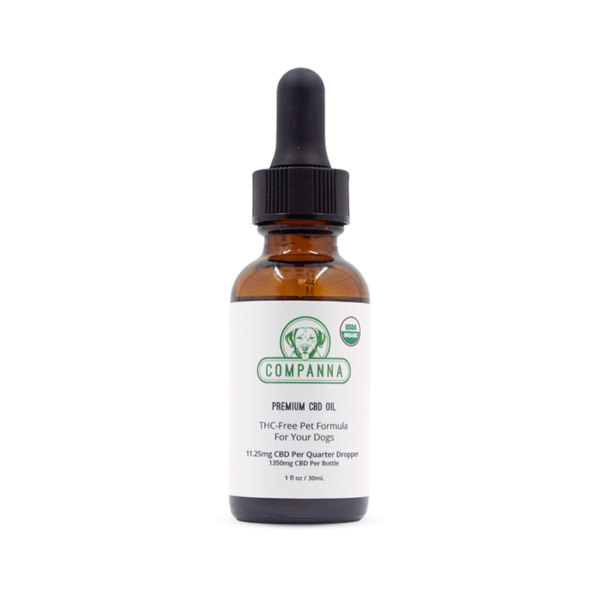What Should I Give My Dog to Sleep?
It’s both inconvenient and frustrating for you and your dog if they can’t sleep at night. Here are some strategies to help them relax.
It’s okay if your dog doesn’t want to settle down and sleep at the same time as you. Before giving them a dose of Nyquil, research the many choices first.
You can offer medications such as Melatonin or Benadryl to help your restless dog sleep, provide them with more mental and physical activity, or change your existing methods to sleeping schedule and bedding. Non-drug alternatives should be tried first before turning to medicine.
We’ll go through the many reasons your dog might be having trouble sleeping so you can make an educated decision on how to assist your pet get some rest. We’ll then take a comprehensive look at pharmacological, natural treatments, and behavioral therapies as well as training and contextual/environmental issues that impact how your dog sleeps so you may discover the solution that’s best for you.
One of the signs that your dog has a health problem causing discomfort is chronic sleeplessness. Chronic sleeplessness might be an indicator of dementia, diabetes, hyperthyroidism, or a urinary tract infection in some cases.
If you suspect your dog has one of these illnesses, it’s essential to notify your veterinarian so they can identify what is wrong.
Pain
If your dog is restless because of discomfort, they may also be displaying other symptoms such as pacing, panting, vocalizing, and general restlessness. It’s also possible that your dog doesn’t show chronic pain as clearly during the day because there are more distractions, but they become bothered by it at nighttime.
Dementia
Dogs, like people, can also get dementia as they grow older. The following are some of the most common ways dementia is manifested in dogs:
- Confusion
- Sleeping Pattern Reversal
- Change in routine or new environments are difficult to adjust to.
- Diabetes
- Hyperthyroidism
Dogs with diabetes experience the following symptoms:
- increased thirst
- increased hunger
- increased urination
- weight loss
- lethargy
Thyroid hyperthyroidism is a disease in which the thyroid gland in your dog becomes overactive. In dogs, it causes the following symptoms:
- Depression.
- Diarrhea.
- Enlarged thyroid gland.
- Excessive thirst.
- Forced breathing.
- Heavy, rapid breathing.
- Increased appetite.
- Increased energy.
- Increased urination.
- Nervousness.
- Rapid heart rate.
- Shaggy hair texture.
- Vomiting.
- Weight loss.
These two problems have the potential to disrupt your dog’s sleeping habits, but they also produce a slew of other symptoms. While these might not be relevant to your pet, it’s worth noting that sleeplessness can be linked to another sickness that demands therapy rather than being a stand-alone problem.
Anxiety
Because sleeplessness in dogs is so uncommon, it can often be a sign of anxiety or stress. An anxious dog will walk back and forth, whine, and occasionally howl through the night..
Need to Pee
If your dog seems uncomfortable and unable to relax, consider the last time you let them out to pee. Before bedtime, it’s critical that your dog has a chance to go outside. While this may appear evident, many times the solution to a canine’s sleeplessness can be as simple as letting them out for a pee.
It’s also worth noting that as your dog gets older, they will need to go to the bathroom more often. You may need to take your dog outside at night so he or she can get a good night’s sleep depending on your schedule and the sleeping habits of your pet.
Frequent urination and health problems
If you’re concerned that your dog’s need to pee is excessive, consider if they’re giving you any further hints that something is wrong.
As a dog gets older, it becomes more likely that frequent urination is due to some other health problem that is increasing their need to urinate or restricting your dog’s control over these bodily processes. Here are just a few of the illnesses that might be causing frequent urination and disrupting your dog’s sleep cycle:
- Urinary tract infection
- Kidney disease
- Hormonal diseases (i.e., diabetes)
- Gastro-intestinal disease
- Neuro-muscular disease
If you believe your dog has one of these problems, take him to the doctor. They’ll be able to tell what’s wrong by testing your dog’s blood or urine, then give you a treatment plan.
Age
The causes of a dog’s sleeplessness might also differ in accordance with their age. If you just got your puppy, they’ll most likely be experiencing separation anxiety due to being away from their mother and litter-mates for the first time. They’re likewise getting used to the surroundings of their new and strange home, which can be stressful. This improves with time, especially if you establish clear sleeping habits and expectations.
Adolescent dogs have a lot of vitality, so if they aren’t mentally and physically exercised enough during the day, they may become restless at night. Older dogs may be uncomfortable or have cognitive problems that prevent them from getting a decent night’s sleep.
What Is the Ideal Amount of Sleep for a Dog? What Does a Typical Night’s Sleep Look Like for Dogs?
The average dog sleeps for 12-14 hours each day. Puppies require even more rest, typically spending 18-20 hours sleeping.
Dogs have polyphasic sleep patterns, which means they go to bed and get up several times each day. This contrasts with human monophasic sleeping cycles, in which there is only one stage of sleep that lasts longer.
Dogs require around 10% REM sleep in any given cycle, whereas humans require around 25%, therefore it makes sense that they feel most refreshed when sleeping more frequently in smaller amounts to get the most out of their restful, REM sleep.
Because of their polyphasic sleep cycles, many dogs don’t sleep through the night, but this isn’t usually a problem unless your dog’s becoming excessively restless in the middle of the night to the point where it’s affecting your own quality of sleep.
What should you give a dog to sleep at night?
It’s critical to speak with a veterinarian before giving diphenhydramine to your dog. Lower doses will make your pet sleepy, but too much can have the opposite effect and cause him to become restless, agitated, and sweaty.
When diphenhydramine is used in combination with non-steroidal anti-inflammatory drugs like ibuprofen and naproxen, stomach irritation and kidney damage can occur.
Doxylamine is a sedative that’s chemically very similar to diphenhydramine, but it should not be given to dogs or cats and pet owners should exercise extreme caution with this drug.
Melatonin is a naturally occurring hormone that helps regulate sleep by supplementing hormones produced by the pineal gland. It may be taken by people and animals. It can also help with cognitive impairments, separation anxiety, hyperactivity, sleep cycle problems, and sometimes epilepsy in dogs.
This is a fantastic approach to help your dog sleep through the night if they begin to have problems sleeping through the night. When giving melatonin to your dog, be cautious since some medicines include xylitol, which can be damaging in large doses and cause low blood sugar and liver damage. Even if xylitol isn’t included, an overdose of melatonin might result in drowsiness and an upset stomach.
CBD Oil
Although the calming effects of CBD oil won’t make your dog high, it will produce a soothing atmosphere. CBD has grown in popularity as a treatment for dogs who suffer from a variety of issues.
Vets are not allowed to prescribe CBD oil for dogs, but they can discuss its usage with you. Inquire of your veterinarian whether CBD oil is a good idea for your dog’s sleeplessness.
With great success, we’ve used Companna.com’s CBD oil. It’s designed especially for dogs and contains no THC. It’s made in the United States and is entirely organic, free of GMO or additions, and vegan. We recommend buying it in dropper bottle form so you can give it directly to your dog on his/her tongue or into his/her food without any spills.
Make sure you’re buying CBD Oil from a reputable source that has been tested by a third party and comes with a Certificate of Analysis (COA). This COA will show how much CBD and THC the product contains, as well as any contaminants, pesticides, and other test results.
Other Non-Medicinal Options
If you’re not into the notion of drugging your dog to help them sleep (which we think should be avoided as a last resort), there are a few more things you can do to assist relax and control their sleeping cycles.
Exercise
It’s also possible that your dog isn’t settling down for bed because they haven’t gotten enough activity. This can become an issue, especially if your dog is a working breed that requires lots of exercise and stimulation.
Playing for a few minutes before unwinding at night tugs on their energy, both physically and mentally.
Walking with your dog can lead to increased urination or a bowel movement later on, which will help to prevent your dog from needing to pee at night.
There’s No one Size Fits all Option for Sleeplessness
There are a variety of ways to help your dog fall asleep at night, but it’s ultimately up to you to determine what is ideal for you depending on the underlying cause of their insomnia and what solutions work best for your lifestyle, routine, and goals.
Although it is a tempting and completely legal alternative to give your dog medication to help them sleep, it’s wise to know about other solutions such as training and environmental modifications in addition.
Developing a broader understanding of the many strategies lets you choose from a number of options and discover which is ideal for your dog’s specific situation.






